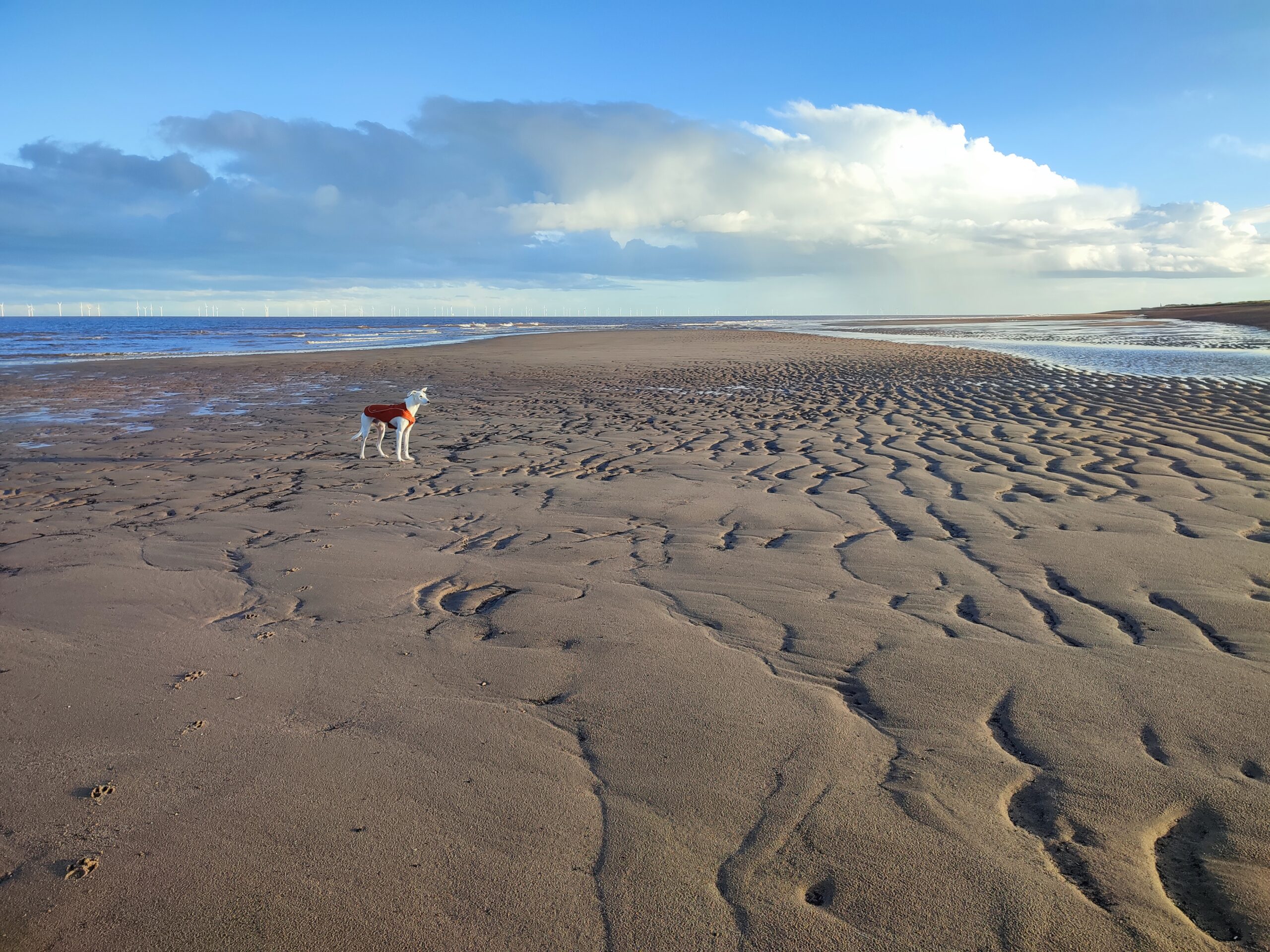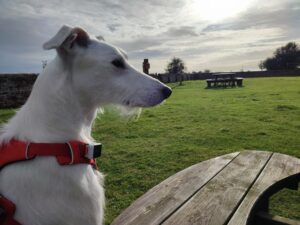Come back!…

We’ve all been there. Our dog is off the lead and he won’t come back. He’s rushed off into the woods and has disappeared. This is a picture I come across a lot. Usually, the dog owner is not risking letting their dog off the lead, because they a terrified it won’t come back.
In fact, certain breeds appear doomed to be kept on extending leads and never let off. This, in my view, condemns a dog to a life of never enjoying, fully, what it is to be a dog, particularly breeds such as Lurchers and Greyhounds.

In the picture, above, we see to magnificent Clint. He is my rescued Lurcher. My vet’s advice was to never let him off the lead because of his breed and high prey drive. These guys are bred to hunt and chase down small animals (hares). Therefore, running is in their DNA. Bigtime!
So, is Clint allowed off the lead? Of course. Every day he has long walks in the woods and other areas where he can run and really do what he’s meant to do. Do I worry about his recall? Not really. Is he perfect? Not really. However, his instant recall is around 95% I would say. For a Lurcher with his background, I am more than happy with that. You will note that Clint, when off lead, wears a muzzle. That is, simply, to protect him from making a mistake; it is safe for him and others, regardless of how lovely a temperament he has.
I accept, that he will not always respond instantly to my demands. He is, of course, not allowed to rush up to other dogs and I have helped him develop good manners with humans and other animals.
Below we can see Clint coming, almost instantaneously to my whistle.
Another example, this time on the beach, whilst on holiday.
And, finally, coming after a pause.
There are a couple of observations to be made here. The first is that with all of the above recalls you will note that I gave Clint time to get to me. I remained calm with an enthusiastic voice and, praised Clint when he got back to me. Although I could train Clint to return to my side and sit; I am only concerned with him coming back to me or close to me.
In the last example above, you can see Clint didn’t return instantly because he was looking for squirrels to chase up trees! With a few, fairly gentle, but enthusiastic prompts he returned. This, for me, is the whole point of recall – when your dog returns you MUST praise him with enthusiasm. He will be much more inclined to come to you when he knows it pleases you.
Many dog owners that I meet are amazed that Clint is off the lead and returns so well. Is this some kind of magic? No, of course not. It is, however, the result of consistency and practice, and plenty of it. Clint, as all dogs should, has been taught that WHEREVER he is, this is the response that is required. I have repeated the same training process at home and wherever I walk Clint. This is called ‘generalisation.’ The key to continued success with recall or, indeed, any training is to continue to PRACTICE it throughout a dog’s life.
